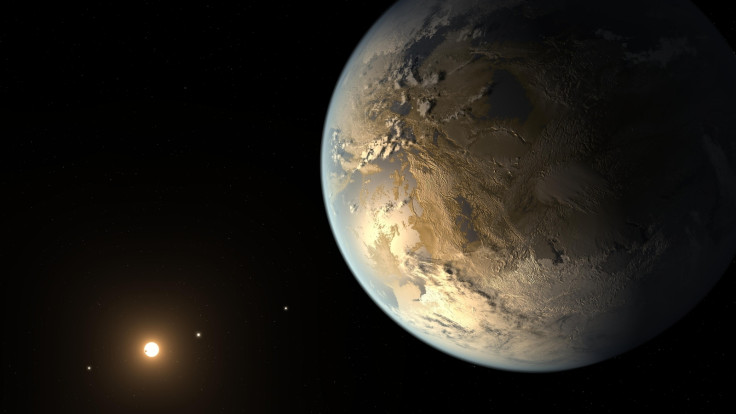Will alien life discovery create panic among humans? Study shows we'd rather be 'upbeat about it'
Researchers have analysed news of potential alien life discovery to understand the reaction of the human race.
For years, astronomers have been scouring the cosmos to find the first "real" evidence of alien life. The search still continues, but one question remains — how will humans react if the existence of aliens is actually proven?
Though movies like Independence Day and War of Worlds have imagined that situations like these would usually end up creating chaos, panic and hysteria among people, a recent study presented at the American Association for the Advancement of Science meet shows that the reaction to the ground-breaking find might not be as bad as it seems.
"If we came face to face with life outside of Earth, we would actually be pretty upbeat about it," said Arizona State University Assistant Professor of Psychology Michael Varnum, who analysed the tone of news articles regarding potential extra-terrestrial discoveries.
Varnum and his colleagues used a sophisticated software to quantify emotions, feelings and drives in written texts and found most of the stories demonstrated a sense of positivity rather than fear or terror.
The group analysed stories like the 1967 discovery of pulsars which was originally seen as an alien life signal, Nasa's 1996 find of fossilised Martian microbes, the periodic dimming of Tabby's star suggested as work of alien megastructures, and the discovery of seven Earth-sized habitable exoplanets around Trappist-1 star.
Even stories regarding interstellar visitor Oumuamua, which many posited could be an alien spacecraft, reflected signs of positive emotions. "This suggests if we find out we're not alone, we'll take the news rather well," Varnum added.
To build on the research, the team also surveyed a group of 500 random individuals to note anticipated reactions to the news of alien microbial life discovery.
When asked how they and the entire human race would see something like extra-terrestrials, more people responded with a sign of positivity. The results remained unchanged even when the news of alien life was compared to another revolutionary story.
"I would be so interested in this. I would find all the info online I could find. I would keep up with it until I saw pictures of the life. Then, I'd probably lose interest," said one of the participant, according to a report in National Geographic.
"I would have some excitement about the news," said another. "It would be exciting even if it was a primitive form". The findings were published last month in Frontiers in Psychology.
However, as the National Geographic reports, many scientists do not think the idea posited with these studies can be generalised for all forms of alien life. This is because there is a difference of light years between finding microbial life and encountering a living, breathing alien race.






















